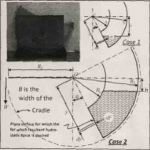Heinz Dilemma
Heinz Dilemma
In a distant country a woman lay dying from a rare and hitherto incurable disease. A pharmaceutical company had recently developed a drug that might save her, but the drug cost $100,000 per dose and no insurance companies or government health care programs would cover it. The sick woman’s husband, Heinz, did everything he could to raise the money, but he could get together only about half of what it should cost. He offered to set up payment plans but he company refused. Finally he discovered that the drug was being stored in a warehouse nearby. He broke in and stole it and gave it to his wife.
Should the husband have done that? Why or why not?
The husband had to do that. This is because in his situation he had no free will to choose between what would be the right thing to do and what would be the wrong thing, he only had one option left and he took it. There is no government health care program or an insurance company that would cover the cost of the drug. Heinz offered to setup a payment plan but the company refused. That was the last option he had if he stood a chance to save his wife’s life. In my opinion the human rights Heinz’s wife can be preferred over the rights of property of the specified lifesaving drug in this scenario. Heinz should agree to pay the consequences in terms of making an arrangement to make the payment for the drugs and/or serve a jail term.
Now, imagine that you are Heinz. What would you have done? Why?
I probably would have done the same thing that Heinz did. I would not want to live knowing that I had the chance to save my wife and I did not take the chance just because of my moral compass.
Imagine yourself on your deathbed, looking back on your life. What would you wish you had done? Why
I would love to have traveled more. The world has so much to offer in terms of culture, sceneries and such like. Traveling would allow me to broaden my understanding of how culture affects each person’s decision. Traveling would also allow me to sample cuisines from different countries while also allowing me to meet countless other people.
What, if anything, does this exercise tell us about the basis on which moral or ethical judgments should be made?
This exercise shows that moral and ethical judgments are subject to change depending on the situation that one is currently facing. One situation may not be ideal for one to break their ethical compass while another may force the individual to break the same moral compass that they have lived to upload.




